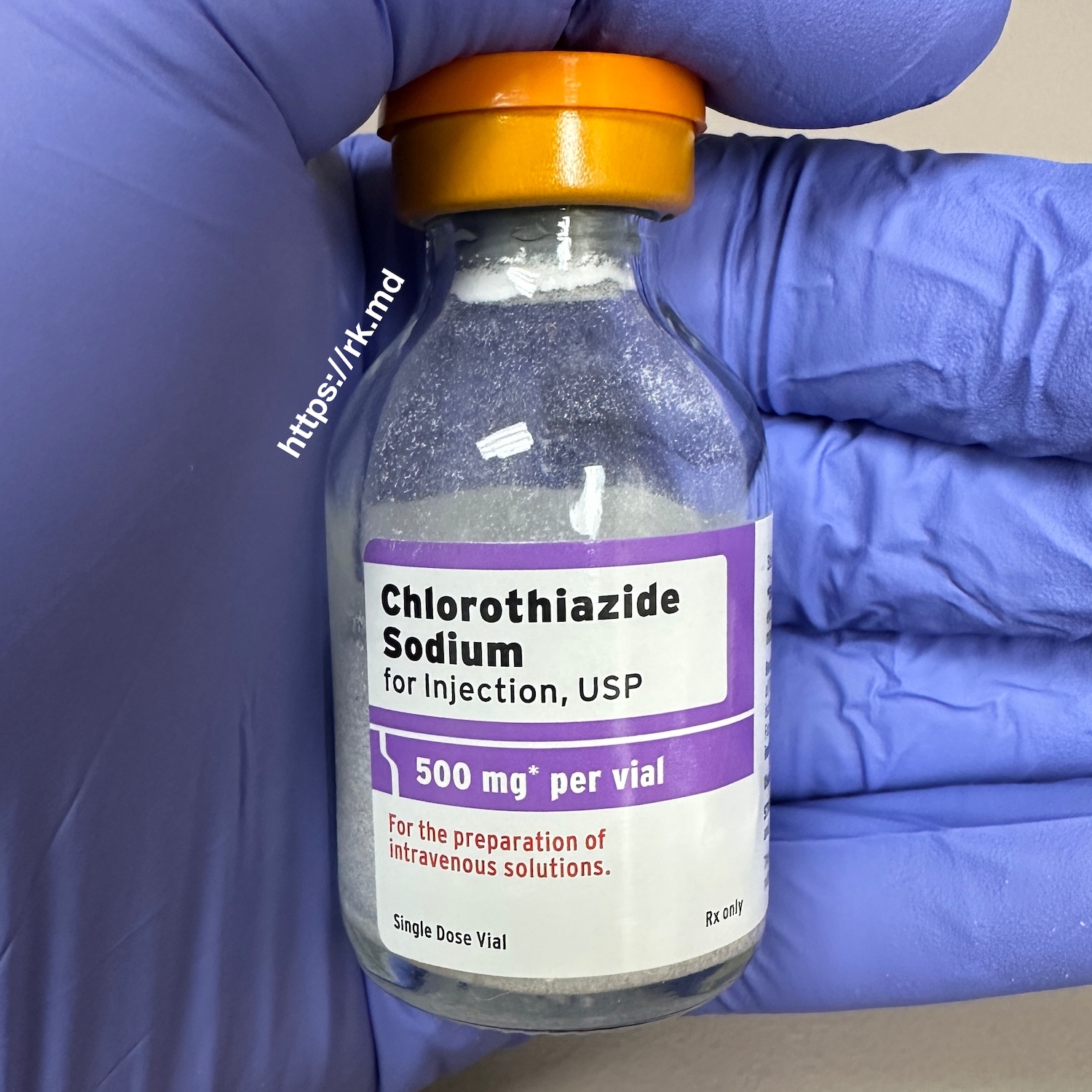Chlorothiazide (Diuril) is a thiazide diuretic that inhibits the sodium-chloride cotransporter in the nephron’s distal convoluted. As such, it increases the excretion of water, sodium, and chloride; however, not to the degree of loop diuretics like furosemide which work on the sodium-potassium-chloride transporter in the thick, ascending Loop of Henle.
Thiazides increase calcium reabsorption from the urine which can be beneficial to those with nephrolithiasis related to hypercalciuria, but this will also increase plasma calcium levels. Furthermore, thiazides can cause hyperglycemia (possibly from decreased insulin secretion), hyperuricemia (competition between thiazides and uric acid for the OAT1 transporter), and hyperlipidemia (increase in LDL and triglycerides)
As an intensivist, I order chlorothiazide or metolazone to augment a patient’s existing loop diuretic regimen by blocking an additional part of the nephron. I often find that this strategy can help improve diuresis in patients with some degree of loop diuretic resistance.
Drop me a comment with your experiences and thoughts!







Hi Rishi,
A lot of times I see this drug being used to decrease the bicarb. Have you used this medication for that purpose in your experience?
Nah, I use the carbonic anhydrase inhibitor acetazolamide (Diamox) for that purpose. It works in the proximal convoluted tubule.